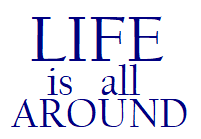Many believe that the science of economics took form in order to bring us wealth, money, order, institutions, and the rule of law. Or, in other words: economic development. We do want this to come, but is this the end goal? Or is it a means to something else?
The goal of every science
All sciences, and especially economics, are about human well-being. But what is it that we mean by human well-being? Defining or measuring it is quite challenging. However, well-being does mean a certain degree of happiness.
If somebody talks about human well-being, happiness inevitably comes into the discussion. You cannot be sad and claim to be in “well-being”. Only when you are happy can you claim that. It may not be a sufficient condition, but it is a necessary one.
Yet, there are people who argue that they can “be well” even without being happy. First, being well and well-being can be two different things. Second, if they define “well-being” like that, it is fine. However, it does not mean that the rest must do the same. Everyone is free to put their own standards on what “well-being” means to them.
How to “judge” economics
As with every science, economics is meant to bring human well-being. Still, it looks like the sole focus of everyone in this economy is on income, GDP, wealth, and money. In other words, everyone is talking about how to produce more, earn more, and have more.
I do not know how much “more” will satisfy you, but chances are this can be an endless process. Earning or having more will not necessarily make you happy. That being said, if we are to judge the success or failure of the science of economics, looking at the evolution of GDP can be misleading.
Since the goal of economics is well-being, it seems to make more sense if we use an index of happiness to evaluate it. Of course, this may be fundamentally difficult to measure. However, it does not change the logic of the argument; it shows that evaluating economics, or any other science, is not particularly easy.
Be your own observant
Since it is fundamentally difficult to measure happiness on a national -let alone global- level, this process is left to be done individually. You are welcome to see for yourself and examine what brings you joy. If earning five digits per month makes you happy, go for it. Absolutely go for it.
Before you commit, though, it is sensible that you are confident this will make and keep you happy for however long you have it. That means that once you have a 5-digit paycheck, you will be joyful and will not need a 6-digit to be happy again. Do you think this will be the case?
If what you seek is meant to bring you happiness, at the moment you reach this goal of yours (whatever the goal), you will be happy ever after. This means that whatever you do after that point will come as an expression of your joy. You will not be pursuing happiness evermore.
You may argue that “what I want will bring me happiness for some time, but then I would have other goals to make me happy”. This is understandable. If you want to invest your life continuous pursuit of happiness, that is fine; go for it. Everyone makes choices. It does, however, sound better to live a life where you always express your joy and do not endlessly pursue happiness. If you would like that, you are welcome to search for ways and set the appropriate goals.
Takeaway:
- Everyone is free to put their own standards on what “well-being” means to them.
- See for yourself and examine what brings you joy.
- Living a life in continuous expression of joy sounds better than a life dedicated to an endless pursuit of happiness.



